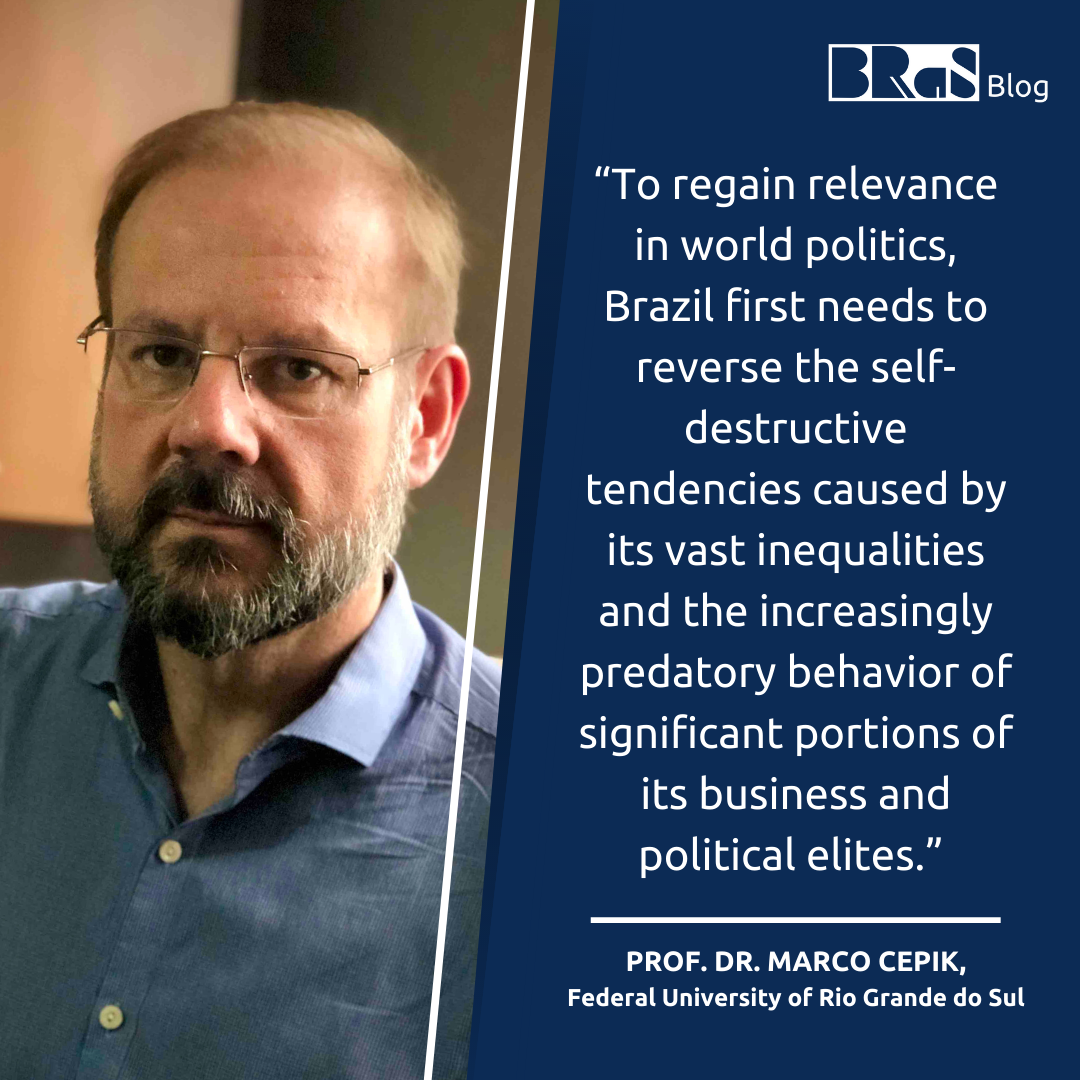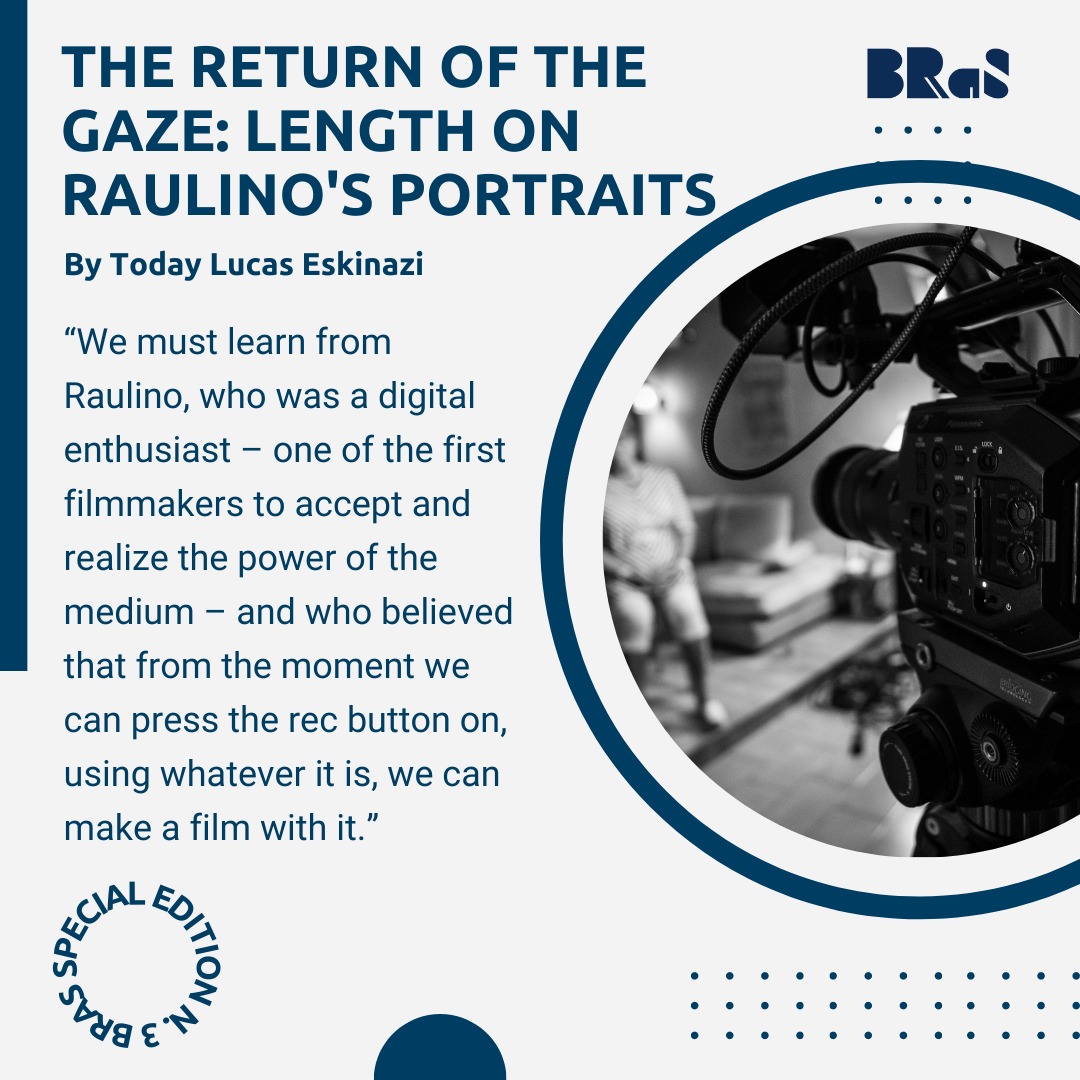by Isabela Espindola and Tatiana de Souza Leite Garcia
Reviewed by Matheus Lucas Hebling
Since the beginning of his term as Brazil’s president, in January 2019, Jair Messias Bolsonaro has adopted a series of measures that negatively impacted Brazil’s image in the international community. From controversial statements around the covid vaccine, denial of climate change to support and encourage a child to carry a gun, Bolsonaro has led Brazil from a prominent position in international relations to one of distrust and outcast (Neves, 2021). One of the most recent and debated cases refers to his speech at the opening of the 76th session of the General Assembly of the United Nations (UNGA), held on Tuesday, Sept. 14, 2021, where he painted a distorted portrait of Brazil to the UN members, diminishing, by this, much of the effort done by Brazilian diplomats to restore the country credibility at the UN (Spigariol, 2021).
This year’s theme of the United Nations (UN) Assembly was “Building resilience through hope – to recover from Covid-19, rebuild sustainability, respond to the needs of the planet, respect people’s rights and revitalize the United Nations”. With this theme, it is possible to imagine that the focus would be on the current problems faced by the international community, such as pandemic and climate change, critical drivers of geopolitics in 2021. It was expected that the leaders would take a stand against these challenges, highlighting the efforts made in their respective countries to contain, for example, the spread of the disease and mitigate the negative impacts of climate change. However, this was not the case in Brazil.
Brazil’s opening speech at the UN Assembly follows a tradition that dates back to 1947, with the country being in charge of officially opening the speeches of the participating world leaders. It is a notorious and privileged role that the current Brazilian president is taking for granted. Since taking office in 2019, this was Bolsonaro’s third presidential address at the annual event. Bolsonaro’s participation generated many expectations. And the far-right leader of Brazil remained defiant against his many critics, especially related to his controversial way of handling the pandemic and the environmental changes, using his role as the UNGA opening speaker to reach out to his fellows and supporters.
The president’s behavior often demonstrates his inability to recognize that foreign policy is also public policy. This connection between the national and international policy is one of the most critical aspects of public administration and governance. Additionally, the position of a government leader in an international event of this caliber has a lot to say about the posture of his government, its principles, and objectives. Even his non-vaccination against Covid-19 is capable of affecting Brazil’s international relations. He is the only one of the leaders of the G20 (a group of 19 major economies in the world and the European Union) present at UNGA to say that he has not taken and will not take the Covid-19 vaccine to go to the meeting.
Not underestimating the importance and impact of his stance against the Covid-19 vaccine, which deserves its analysis based on issues related to global health, this article focuses on the part of his speech related to the environment, mainly to climate change. Bolsonaro’s speech touched on significant international demands: robust, modern, and sustainable environmental legislation, low-carbon agriculture, anticipating global warming targets, decreasing fossil fuel consumption, creating green jobs, improving basic sanitation, and strengthening institutions and environmental agencies.
One aspect of Bolsonaro’s speech was to fend off criticism of his government’s environmental record. And this has been a posture of the president in most of his speeches during international events. It is a straightforward strategy adopted by the government, thus conveying rhetoric of change in the country. A change that meets international pressure, mainly from partner countries of Brazil, such as the United States and the European community itself. But the reality is different. What President Bolsonaro uttered in the UN General Assembly was, without a doubt, an immensity of lies.
Bolsonaro’s government has weakened the enforcement of environmental laws and emptied the agencies charged with enforcing them (ESPINDOLA, 2021). Right after the promises to increase the budget during the Climate Summit, held in March of 2021, the federal government cut funds for the environment. Official government data point to a 24% cut in spending on the environment for 2021. The amount was R$ 240 million in the general budget dedicated to the Ministry of the Environment (MMA). At Ibama, vetoes total R$ 19.4 million. Environmental control and inspection actions were the ones that lost most resources, with a cut of R$ 11.6 million. The Chico Mendes Institute for Biodiversity Conservation (Icmbio), which manages 9.3% of the national territory and 20% of Brazilian waters, suffered a cut of R$ 7 million.
This cut reinforces the dismantling of environmental inspection and shows that the “Bolsonaro effect” led the country to a wreck on managing the environment (MENEZES & BARBOSA Jr., 2021). And it shows President Bolsonaro’s ability to break his promises to leaders and the international community itself. It is necessary to have financial sustainability, a commitment from the institutions, and strengthening inspection all over the country territory to promote effective environmental governance and management. Another primary condition that any manager knows. Maintaining operations depends on resources. It cannot effectively manage the environment, natural resources, and ecosystems in a territory as large as Brazil against this scenario.
Bolsonaro already showed contempt for environmental issues before assuming the presidency. He asked Michel Temer, acting president in 2018, to withdraw Brazil’s candidacy to host the 25th UN Conference on Climate Change (COP-25), which was scheduled to take place in 2019, citing budget constraints. This withdrawal was the first sign that the Brazilian environmental protagonism, gradually built by the excellent work of Brazilian diplomacy over the decades, and the recent tradition of hosting important international environmental conferences, such as Rio 92 and Rio+20, were entering into decline (GARCIA, 2019).
Many of the changes came from the decisions taken by Ricardo Salles, the ex- Environment Minister from Brazil. He was responsible for operationalizing the dismantling of environmental governance in Brazil. Salles is an outspoken advocate of economic growth at any cost who despises negative impacts on the environment and societies, mainly traditional communities such as indigenous and quilombolas.
At the beginning of his term in 2019, Salles dismissed several career employees of environmental agencies and hired new technicians aligned with the ultra-right ideology, including appointing military and police officers for leading positions at the Brazilian Institute for the Environment and Renewable Resources (IBAMA) and the Chico Mendes Institute for Conservation and Biodiversity (ICMBio), without training or experience in the environmental area. In addition, he extinguished the Secretariat for Climate Change and Forests (later renamed the Secretariat for Climate and International Relations in August 2020), transferred the National Water Agency (ANA), the National Foundation for Indigenous Affairs (FUNAI), and the Brazilian Forest Service (SFB) for other ministries (Garcia, 2019). Salles proposed normative instruments to regularize public lands. One example lies in indigenous reserves invaded by land grabbers for agricultural production and extensive livestock, mining, and illegal mining, among other actions. By proposing these changes, the ex-Minister contradicted his responsibilities of caring for the environment this position demands.
Evidence of the increase in deforestation and burning in the Amazon, the dismantling of the licensing structure, environmental monitoring and inspection, pressure from environmentalists, researchers, media, citizens, and public managers in Brazil and elsewhere in the world, and two investigations against the minister Salles for administrative crimes related to the facilitation of illegal timber export schemes, situations that eroded the image of Brazil and culminated in Salles’ resignation on June 23, 2021.
The new environment minister, Joaquim Álvaro Pereira Leite, who has worked for the Bolsonaro government since July 2019, is continuing the policy developed by his predecessor. However, Joaquim Leite is more discreet and has a conciliatory and articulating profile between different stakeholders, such as deputies, businesses, and NGOs. He was an advisor to the Brazilian Rural Society (SRB) for more than 20 years, a private organization that supports the Agricultural Parliamentary Front, known as the ruralist caucus composed of about 200 deputies and senators who defend the interests of agribusiness and supported the Salle’s administration (G1, 2021).
With the current scenario, it is difficult to see a change in Brazil’s position regarding environmental issues and recovery of the country’s credibility for its environmental policies. In the following weeks, the 26th United Nations Climate Change Conference of the Parties (COP26) will be held in Glasgow, Scotland, on November 1-12, 2021, with the United Kingdom presiding. Environment Minister Joaquim Leite will head Brazil’s delegation to COP26. Questions remain open if this international event shows if Brazil will formally lodge its commitment to the environment.
Isabela Espindola is Ph.D. in Human Geography from the University of São Paulo (USP). Bachelor in International Relations and Economics, and Master in Environmental Sciences. Researcher member of the Political Geography and Environment Research Group of the Laboratory of Political Geography at USP. FAPESP Fellow and Brazil Steering Committee Member at the BRICS CCI Young Leaders. The author has a special interest in the areas of international relations, hydropolitics, and transboundary cooperations, as well as human rights, sustainable development, and environmental policy. The author Isabela Battistello Espíndola thanks the São Paulo Research Foundation (Fapesp), which financed the research project related to grant #2017/17997-9. The opinions, hypotheses, and conclusions or recommendations expressed in this material are the responsibility of the author(s) and do not necessarily reflect the vision of Fapesp.
Tatiana Leite is Ph.D. in Human Geography from the University of São Paulo (USP), Master in Geography and Bachelor in International Relations and Geography. Researcher member of the Laboratory of Political Geography at USP. Professor at the Anhembi Morumbi University. The author has a special interest in the areas of international relations, geopolitics, sustainability, regional integration, Brazil’s international projection, environmental and transport policies. This study was financed in part by the Coordination of Superior Level Staff Improvement (CAPES) – Finance Code 001. The opinions, hypotheses, and conclusions or recommendations expressed in this material are the responsibility of the author and do not necessarily reflect the vision of CAPES.
References:
Neves, B. C. 2021. From regional leader to international outcast: the Brazilian foreign policy under Bolsonaro’s government and its impacts on South-American regionalism. Brazilian Research and Studies Blog- BRaS-Blog, Special Edition – The new Brazilian Foreign Policy under Bolsonaro, vol. 2 num. 3, Oct. 6, 2021. Available at: https://www.bras-center.com/wp-content/special-edition-the-new-brazilian-foreign-policy-under-bolsonaro-from-regional-leader-to-international-outcast-the-brazilian-foreign-policy-under-bolsonaros-government-and-its-impacts-on/
Spigariol, A. 2021. Bolsonaro off-script speech leaves Brazilian diplomats fuming. The Brazilian report, sept. 21, 2021. Available at: https://brazilian.report/power/2021/09/21/bolsonaro-unga-diplomats-fuming/
Espindola, I. B. 2021. The 2021 Climate Leaders Summit and Brazil’s position on the international environmental agenda. Brazilian Research and Studies Blog- BRaS-Blog, v. 2, p. 1-3, 2021. Available at: https://www.bras-center.com/wp-content/the-2021-climate-leaders-summit-and-brazils-position-on-the-international-environmental-agenda/
Garcia, T. de S. L. 2019. Desafios da Integração Sul-Americana: as Políticas de Meio Ambiente e de Transportes no MERCOSUL (2009 – 2019). 2019. 355 f. Thesis (PhD in Human Geography) – Sao Paulo University, São Paulo (Brazil). Available at: https://www.teses.usp.br/teses/disponiveis/8/8136/tde-16062020-122911/publico/2019_TatianaDeSouzaLeiteGarcia_VOrig.pdf
G1. 2021. Quem é Joaquim Alvaro Pereira Leite, que substitui Salles no Ministério do Meio Ambiente. Available at: https://g1.globo.com/politica/noticia/2021/06/23/quem-e-joaquim-alvaro-pereira-leite-que-substitui-salles-no-ministerio-do-meio-ambiente.ghtml
Menezes, R. G., & Barbosa Jr, R. 2021. Environmental governance under Bolsonaro: dismantling institutions, curtailing participation, delegitimising opposition. Zeitschrift für Vergleichende Politikwissenschaft, 1-19. Available at: https://link.springer.com/article/10.1007/s12286-021-00491-8
Garcia, Isabela Battistello Espindola and Tatiana de Souza Leite. 2021. "Environmental issues, UNGA and Bolsonaro – from fake news and denials to inability to govern". Brazilian Research and Studies Blog. ISSN 2701-4924. Vol. 2 Num. 2. Available at: https://www.bras-center.com/environmental-issues-unga-and-bolsonaro-from-fake-news-and-denials-to-inability-to-govern/, accessed on: February 19, 2026.






